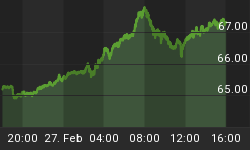You likely are being besieged by the announcement yesterday that Spain has announced a budget for next year that proposes:
-
significant federal government spending cuts of over 7%;
-
continuing public sector wage freezes; and,
-
a 4% increase in government income based on a general 15% increase in value-added tax introduced this month (now 21%) on all but food, drink, goods from chemists; construction work; and some newspapers (4%), and passenger transport, hotel and restaurant services (10%).
The budget now goes to parliamentary debate, which is said could last for weeks.
Concurrently:
-
Spain's 17 regions (or provinces) are yet to present budgets for next year, and are said to have to meet public debt reduction goals pursuant to significant cost reductions;
-
the region of Catalonia is threatening secession from Spain;
-
there have been, and presumably will continue to be, public demonstrations against austerity; and,
-
Spain is scheduled to reveal its bank stress tests at noon ET, after the European financial markets are closed.
Recall that:
-
measured by 2011 GDP Spain was the fourth largest country in the 17 country Eurozone, the fifth largest economy in the European Union, and the twelfth largest economy in the world; and,
-
Spain's reported overall and youth unemployment rates currently are about 25% and 53% respectively.
Spain is a big deal, and I think in the end Spain's budget debates are unlikely to end well, and that will prove to be not a 'good big deal' for the Eurozone and for the world economies.
Topical Reference: Spain's crisis budget aims at spending cuts not tax rises, from Reuters, Andres Gonzalez and Paul Day, September 27, 2012 - reading time 3 minutes.
Also see: French budget and Spanish bank stress tests: live, from The Telegraph, Szu Ping Chan, September 28, 2012 - reading time 3 minutes.















